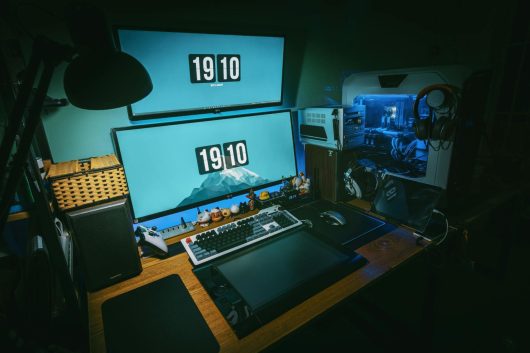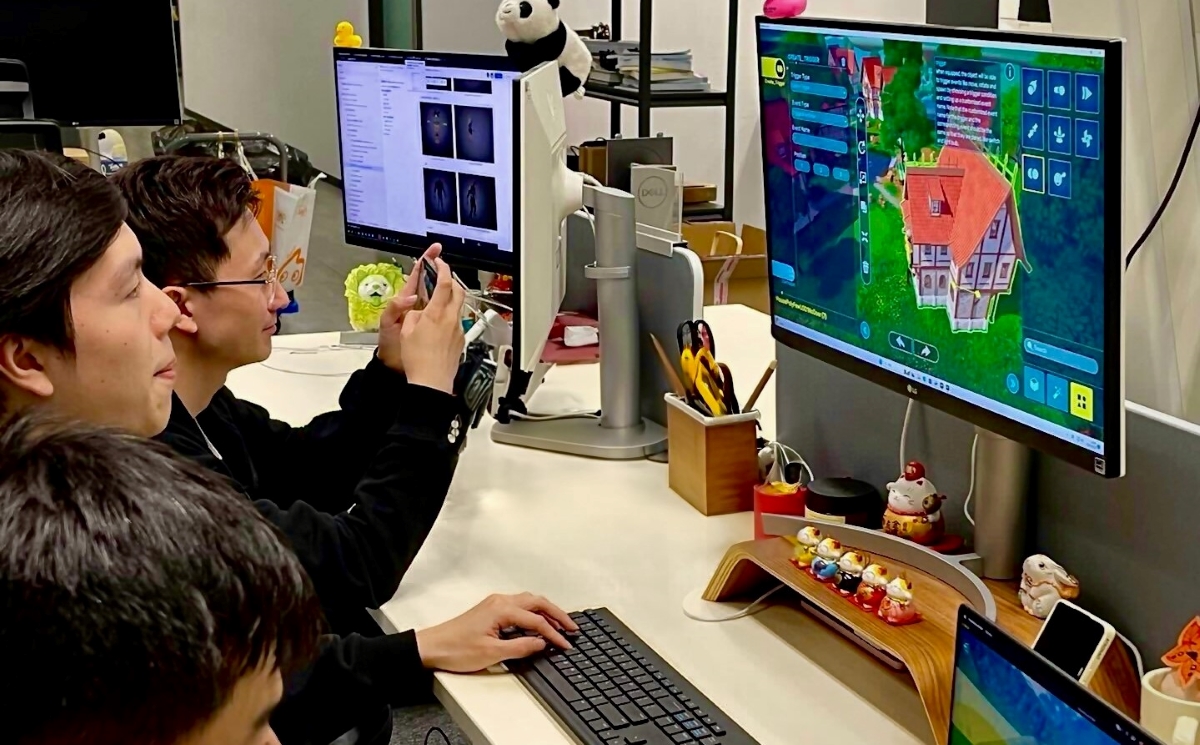


# The Remarkable Expansion of the Video Game Sector and the Escalating Need for Game Developers
In the last ten years, the video game sector has undergone tremendous expansion, evolving from a niche interest into one of the most influential entertainment mediums worldwide. What used to be a hobby for a limited audience has transformed into a mainstream cultural sensation, boasting over three billion gamers across the globe. Industry studies indicate that the worldwide gaming market is anticipated to generate around $203 billion in revenue by the close of 2024, achieving a compound annual growth rate (CAGR) of 6.2%. This swift growth has led to an immense need for skilled game developers who create, construct, and sustain the engaging virtual environments that engage players.
Numerous elements are driving the rising demand for proficient game developers, including the surge in mobile gaming, the ascent of indie games, immersive technologies like virtual reality (VR) and augmented reality (AR), and the transition toward live service games. Let’s delve into these trends and their impact on the future of game development.
## The Surge in Mobile Gaming
A major catalyst for the growth of the video game industry is the surge in mobile gaming. What was once viewed as a casual gaming option is now the highest-earning segment of the sector. Per Newzoo, mobile gaming revenue is set to increase by 8.7% annually, hitting $99.7 billion by the conclusion of 2024.
Hit mobile titles such as *Candy Crush*, *Clash of Clans*, *Pokémon GO*, and *Genshin Impact* have captured the attention of millions with their easy touch-screen controls and quick, engaging gameplay. These games have demonstrated that mobile platforms can offer captivating and addictive experiences, frequently monetized through microtransactions and a “free-to-play” model.
Creating these games necessitates highly skilled software developers who specialize in mobile operating systems like iOS and Android. Furthermore, proficiency in cross-platform game engines like Unity is vital to ensure seamless operation across different devices. Mobile game developers need to enhance performance while implementing effective monetization strategies, making mobile game programming a highly desirable expertise. With the mobile gaming market exhibiting no signs of decreasing, the need for elite mobile game developers will persist.
## The Indie Game Movement
Another notable trend within the gaming landscape is the emergence of indie games. The availability of game development tools has enabled small teams and solo developers to create and release their own games, circumventing traditional publishing routes. User-friendly game engines like Unity and GameMaker Studio, in addition to digital distribution platforms such as Steam and Itch.io, have simplified the process for indie developers to realize their creative ideas.
Indie titles such as *Stardew Valley*, *Hades*, and *Hollow Knight* have achieved both critical and financial acclaim, demonstrating that smaller teams can craft experiences comparable to those from major studios. This indie game movement presents a substantial opening for developers seeking more creative freedom and ownership of their work.
However, participating in the indie gaming sector requires programmers to be adaptable and capable of assuming various roles. Indie developers often need to possess skills across multiple programming areas, including gameplay programming, graphics enhancement, networking, and user interface (UI) design. The ability to manage diverse components of game development renders versatile programmers extremely valuable in the indie arena. For individuals eager to display their talent and originality, the indie gaming surge offers a one-of-a-kind and thrilling opportunity.
## The Emergence of VR/AR Gaming
Innovative technologies like virtual reality (VR), augmented reality (AR), and mixed reality (MR) are also fueling the increasing demand for specialized game developers. Although still in its early phases, the VR/AR market is projected to experience substantial growth in the years ahead. Market analysis firm Pitchbook estimates that the VR/AR sector will expand from $16.8 billion in 2024 to over $77 billion by 2028.
Leading VR titles like *Beat Saber* and *Half-Life: Alyx* have showcased the possibilities of immersive gaming, allowing players to engage with three-dimensional environments through motion inputs, spatial audio, and head/eye-tracked interactions. Crafting such games requires knowledge in 3D spatial computing, rendering optimization, movement techniques, and motion input design.
As VR and AR technologies progress, the demand for game developers who can craft profoundly immersive experiences will rise. Developers specializing in these innovative technologies will play a critical role in shaping the future of gaming.
## Live Services & The Games-As-A-Service Model
The conventional approach of releasing a game as a static product has transitioned toward a “games-as-a-service” (GaaS) model, treating games as dynamic, evolving platforms. Popular games such as *Fortnite*, *Apex Legends*, and *Destiny 2* epitomize this model, providing players with ongoing
No Comments
To comment you need to be logged in!